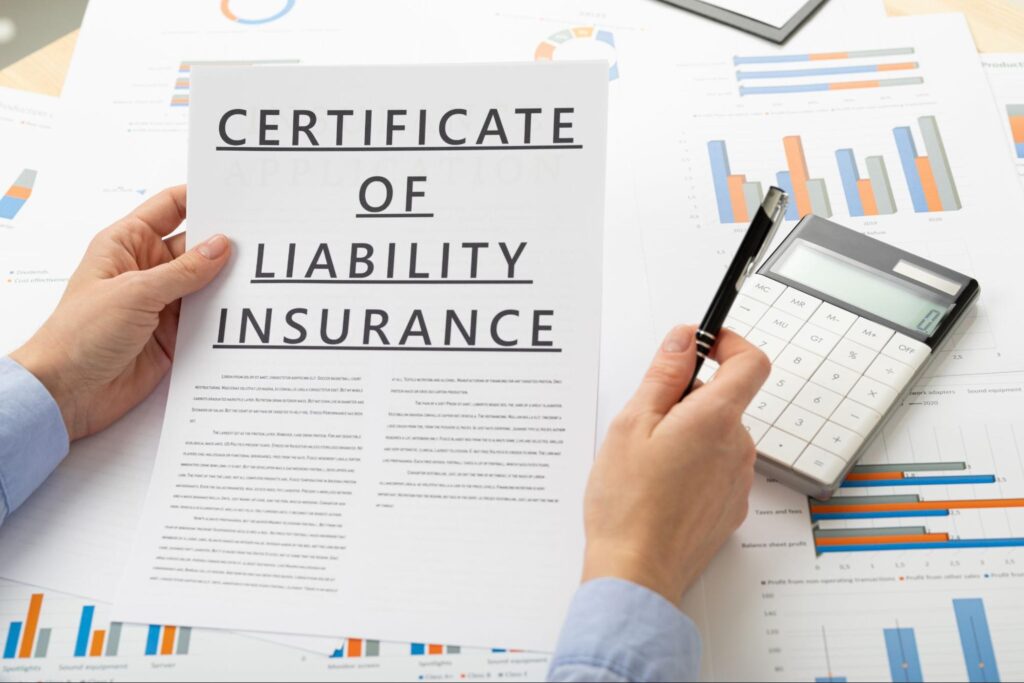What Does Liability Insurance Cover?
What Does Liability Insurance Cover? Home Blog Business moves fast, but risk moves faster. One unexpected accident, on-site or off, can result in lawsuits, medical bills, or damaged relationships. Liability insurance isn’t optional for any company with workers, contractors, or third-party exposure; it’s foundational. It protects you when someone gets hurt, property is damaged, or legal action follows. Employers should know what liability insurance covers, including those who place workers in external environments. Why Understanding Liability Insurance Lowers Risk Legal claims don’t wait for ideal timing. Whether you’re onboarding employees, expanding to new locations, or partnering with clients, liability exposure grows. Insurance allows you to move forward without fear that one accident or claim will derail your progress. It’s not just coverage but a sign of operational discipline and long-term thinking. What Does Liability Insurance Cover in Business? Liability insurance protects companies from legal and financial responsibility when they cause harm to others. That harm could be physical injury, property damage, reputational loss, or failure to act with due care. Policies differ based on how and where you operate, but the goal is consistent: to shield your business from the fallout of claims. Employers who hire directly or place staff at third-party locations should pay close attention to how coverage applies. What Employer’s Liability Insurance Covers Employer’s liability insurance steps in when a worker claims injury or illness and alleges that the employer’s negligence was to blame. It supports legal defense, pays settlements or court awards, and complements workers’ compensation coverage. This coverage is especially relevant for companies that hire workers for physical roles or assign them to external workplaces. Whether you run a factory or provide staffing solutions, this policy helps you meet your responsibilities as an employer. Coverage for Negligence-Linked Worker Injuries Your business could be held responsible if a worker is injured due to faulty equipment, lack of training, or unsafe conditions. Employers’ liability insurance helps cover legal fees and financial damages when workers’ compensation doesn’t fully handle those injuries. This coverage is vital for employers who oversee hazardous tasks or fast-paced environments. If you place staff into roles outside your workplace, you may still be liable depending on your contract terms. Having insurance to address that risk is an innovative business. Legal Protection for Occupational Illness Claims Some workplace exposures don’t result in immediate injury. Long-term effects like respiratory conditions from fumes or joint damage from repetitive tasks can surface months or years later. If your employee alleges that the illness is job-related and sues for damages, the employer’s liability insurance responds. That is crucial for industries with physically demanding roles or less controlled environments. For employers managing on-site teams or deploying workers to client locations, this risk grows with scale. Indirect Claims Through Third-Party Lawsuits Sometimes your employee sues a third party, such as a property owner or equipment vendor. You could face a secondary claim if that third party sues your business for contributory negligence. Employers’ liability insurance helps you defend against these complex cases. Indirect claims are more common than most companies realize, primarily when multiple businesses interact in one workplace. This coverage gives you legal and financial support when disputes escalate. General Liability Insurance for Businesses General liability insurance protects your company from claims by third parties, such as customers, visitors, vendors, or the public. It covers injuries, property damage, and specific legal actions tied to your operations. This type of insurance is foundational for any employer interacting with clients or the public. It also helps if your staff causes damage while working at another location, whether it’s your job site or someone else’s. Third-Party Injury on Business Premises If a delivery driver slips on your property or a vendor is injured while inspecting your equipment, your company may be liable. General liability insurance covers their medical costs, legal expenses, and possible compensation. These incidents are unpredictable but expensive to resolve. Whether you run a retail storefront, a production facility, or a professional office, third-party injuries are a constant exposure. This insurance keeps one accident from turning into a financial crisis. Damage to Others During Business Operations General liability can cover the repair or replacement costs if your employee accidentally breaks equipment at a client’s location or damages property while providing services. It is vital for businesses whose operations involve movement between sites. Coverage also applies to subcontractors or temporary staff you oversee. It supports smooth client relationships and reduces friction when mistakes happen. Protection Against Reputational Claims Sometimes harm isn’t physical; it can be reputational. General liability insurance can respond if your business is accused of slander, libel, or using copyrighted materials improperly. It includes advertising materials, social media content, or verbal statements. These risks are real for companies that publish content, market services, or communicate externally. Having this protection avoids sudden legal fees and PR fallout. Liability Insurance Coverage for Business-Owned Vehicles Commercial auto liability insurance is essential if your business owns or operates vehicles. It protects you when a company-owned vehicle causes damage or injury. That applies to deliveries, field service, site visits, or transportation work. Employers who assign vehicles to staff, especially for client-facing roles, should consider this non-negotiable. Bodily Injury from Vehicle Accidents Your business may face a lawsuit if your driver causes an accident that injures someone. Auto liability insurance covers the injured party’s medical bills, lost wages, and potential legal action. These costs often climb well into six figures. Without coverage, a single accident could seriously damage your finances. Even minor fender benders can escalate if legal claims follow. Damage to Other Vehicles or Property Crashing into another car isn’t the only concern. You’re responsible if your vehicle damages a fence, building, or city property. Commercial auto liability pays for those repairs. This protection keeps operations moving without added liability for companies that operate a fleet or regularly travel to job sites. It’s one less thing to worry about in an already complex workday. Legal Defense from Auto-Related Lawsuits Legal costs after an accident


